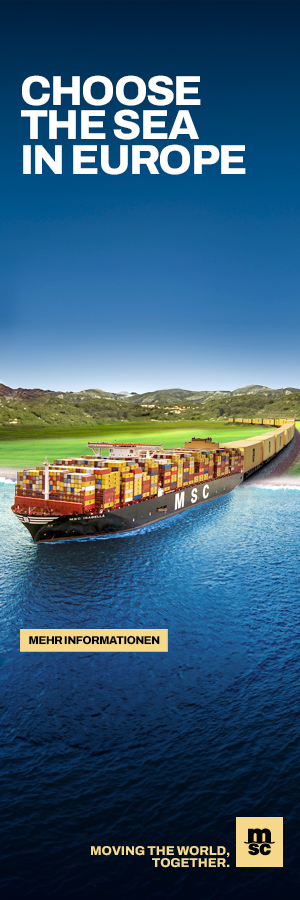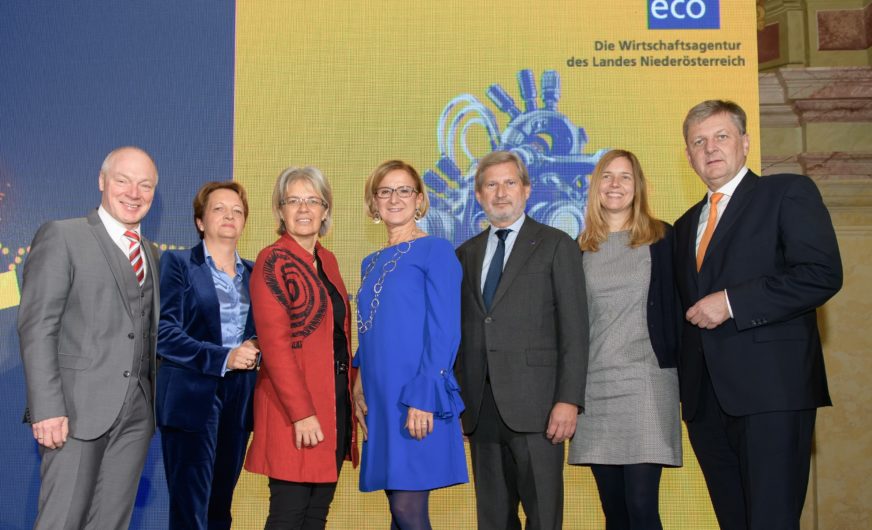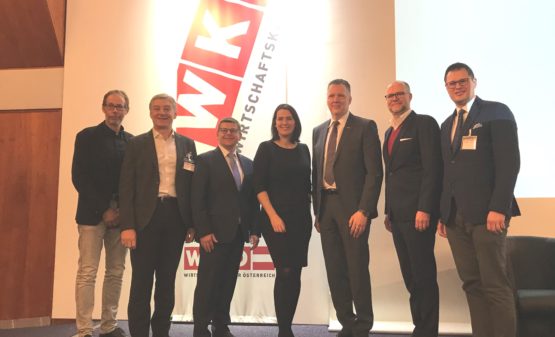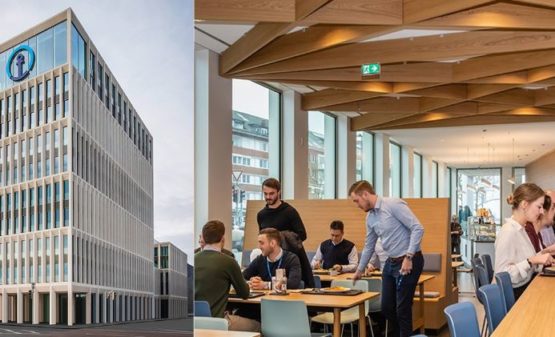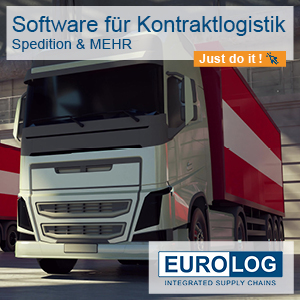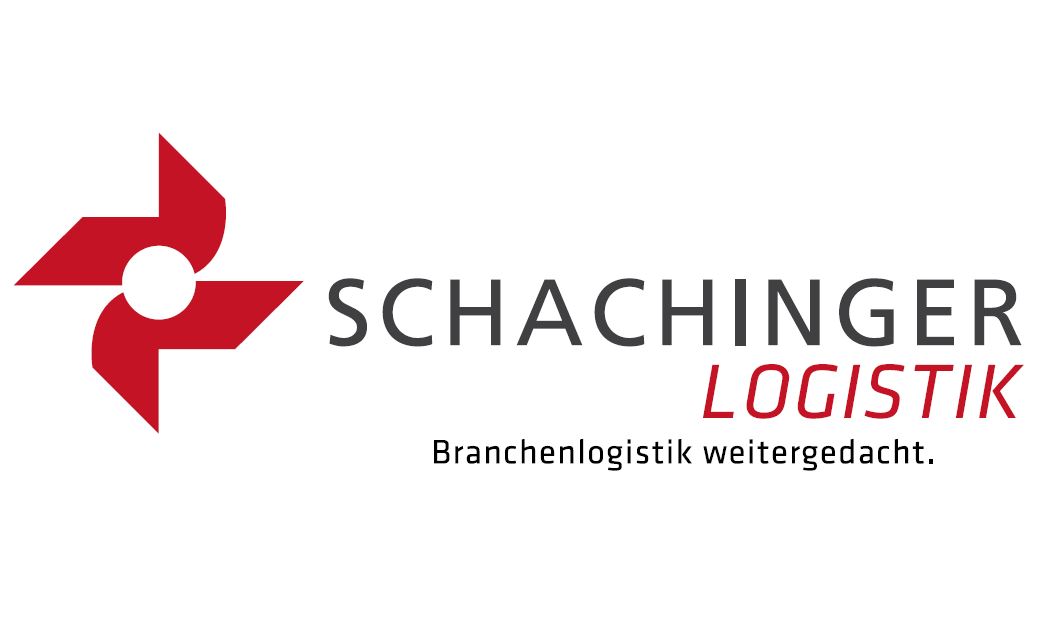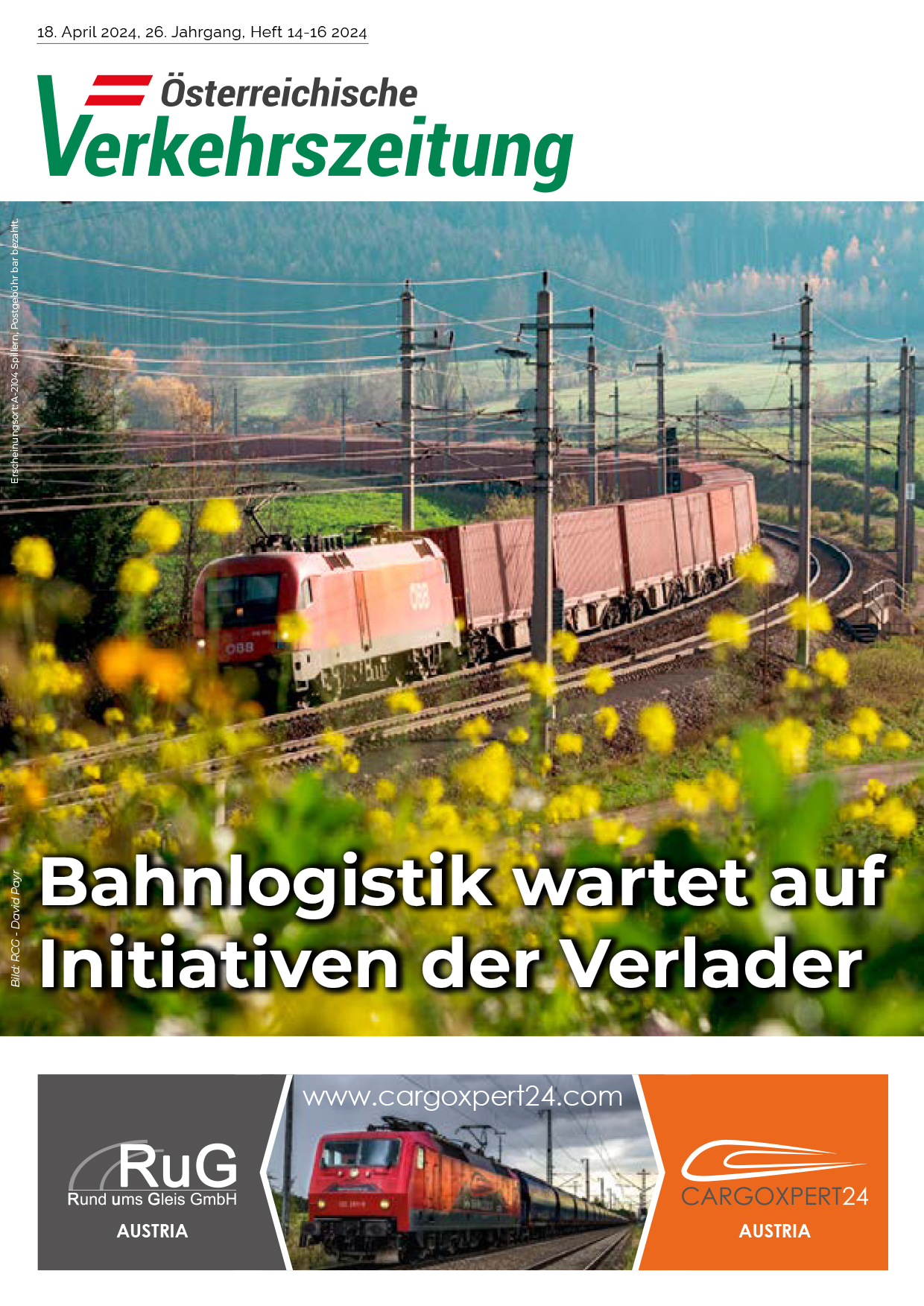In June 1989, Foreign Minister Alois Mock and Gyula Horn symbolically severed the barbed wire fence between Austria and Hungary. This was the beginning to the end of the separation of Europe. On October 31st, in the Palais Niederösterreich, provincial governor Johanna Mikl-Leitner, EU Commissioner Johannes Hahn, Economic Affairs Councilor Petra Bohuslav and ecoplus Managing Director Helmut Miernicki together with company representatives analysed what this historic event has meant and still does for the domestic industry.
“Northern Lower Austria and its eastern neighboring regions formed a common habitat for centuries. With the fall of the Iron Curtain, these regions and their people finally regrouped after decades of enforced separation. In the truest sense of the word, that was the opportunity of the century, and in retrospect, we can say that we made excellent use of it. Lower Austria is one of the top regions in terms of business, technology, tourism and quality of life,” explained Provincial Governor Johanna Mikl-Leitner at the anniversary event.
Above all, the Lower Austrian export industry has reacted quickly to the new opportunities and has been able to attract new target groups in neighboring countries. The year 2018 was particularly successful with an export volume of EUR 23.1 billion. Export growth has increased by 6.1 percent compared to 2017. One main reason for this strong result is the rising export figures to Eastern Europe.
“We can certainly speak of a renaissance of the Eastern European markets. Hungary, for example, was the third most important domestic export market, gaining 13.5 percent. The Czech Republic and Hungary have already overtaken Italy in the ranking of the top export markets and are in second and third place, after Germany. The fact that we have been supporting companies in the process of entering new markets with a multitude of services within the scope of ecoplus International for many years now more than pays off,” commented Petra Bohuslav, State Secretary of the Economy.
On the occasion of the anniversary gala Reinhard Wolf, CEO of RWA Raiffeisen Ware Austria AG, Karin Weissenböck, Managing Director of the Moorheilbad Harbach, and Lisa Dyk, from the First Raabser Walzmühle, discussed the effects of the fall of the Iron Curtain from an entrepreneurial point of view. In his remarks Reinhard Wolf stressed the connecting element of the Danube for the cultural and economic area in the riparian states.
The RWA manager called the removal of the weak points on the waterway all the more urgent. The framework conditions for the year-round continuous navigability of the Danube with a depth of 2.5 meters and thus for the risk-free use of inland navigation were still missing. Also, the equipment for the cargo handling would have to be improved in Southeastern Europe, is his appeal to the policy.
The ecoplus regional promotion made a significant contribution to this positive development in Lower Austria. The aim of the program was and is to accompany the development of the regions according to their regional characteristics with the help of impulse projects coming from the regions. A large part of the funded projects – namely a total of 41 percent – are located in the Waldviertel and in the Weinviertel.

